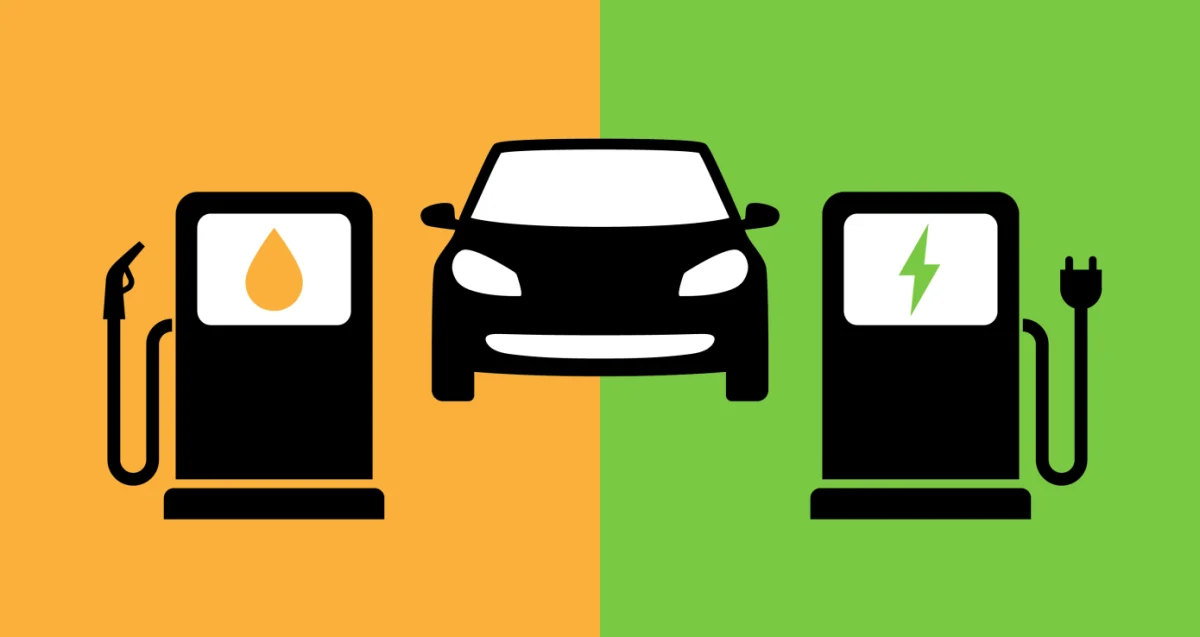Electric: The future of electric cars is the only things that can start to reverse some of the damage caused to our environment.
In the past 10 years, electric cars have taken the world by storm, and in my opinion, for good reason. The impact of gasoline-powered cars on the environment has been a major concern for a significant period. The gas car has depleted our natural resources, impacted our environment in an extremely negative way, and has made the world dependent on a fuel that is slowly becoming scarce. In recent years, the negative impacts have been discussed more frequently, leading to calls for change. The solution to this challenge has been the creation and popularization of the electric car, which has already demonstrated significant improvements to our world compared to traditional gas-powered cars. The electric car is on its way to becoming the best choice to protect our environment by mitigating the negative impacts of gas-powered vehicles on the road.
It is no secret that gas-powered cars have been adversely impacting our environment and the ozone layer for years. However, in recent years, we are just starting to truly understand how significantly our environment has changed as a result. When driving passenger gas cars, we release an average of 400 grams of carbon dioxide per mile. Alongside the copious amounts of carbon dioxide being emitted, we also emit greenhouse gases, including methane and nitrous oxide, from the tailpipes of gas cars. These greenhouse gases are capable of insulating the atmosphere and trapping heat, which directly contributes to the observed rise in global warming. However, electric cars that have a battery engine instead of a gas engine do not release any of these toxic gases. The only gas that could be emitted from an electric car is from the air conditioner/HFC’s leaking, but even that is at a much smaller rate than a gas car would emit. The impacts of battery-powered cars on the ozone layer have already begun to show positive effects, as the amount of greenhouse gases has started to decrease due to the switch from gasoline-powered cars.
There are many items in our daily lives that depend on fossil fuels. We use them to heat our homes, provide electricity, power industry, manufacturing, and more. However, the item in our daily life that is most dependent on fossil fuels is gasoline-powered cars. We heavily rely on fossil fuels to power our cars every day, enabling us to commute to work, school, and various activities. Yet, our national supply of these fuels is diminishing, and it is diminishing fast. The challenge of finding and preserving fuels at a reasonable cost is becoming increasingly difficult as more things rely on fossil fuels. The solution is a new energy source for cars. The method: the electric car battery. The car battery for the electric car removes the need for fossil fuels as a means of power all together. It makes it possible to depend on another source of energy that is easier for us to obtain. The impacts of the implementation of electric cars over gas cars can already be seen as less fossil fuels are being used which in turn diminishes our strong dependence on them while also improving the amount of greenhouse gases released into the atmosphere.
The argument that electric car batteries consume more raw materials to manufacture than fossil fuel-powered cars has been raised before. To manufacture an electric car battery, a higher rate of mining for materials such as nickel and cobalt is needed. While this may be true, the environmental impacts of this do not come close to comparing it to the environmental cost of fuel extraction, which is much higher. As reported in The Guardian, it is stated that, “Over its lifetime, an average fossil-fuel car burns the equivalent of a stack of oil barrels 25 stories high.” If you take into account the recycling of battery materials, only around 30 kg of metals would be lost – roughly the size of a football. This size comparison truly illustrates the contrast in environmental impact between the use of fossil fuels and electric car batteries. While both have negative impacts on the environment, it is clear that fossil fuels are much more prevalent.
It is no secret that gasoline-powered cars have faced opposition for a long time. Their dependence on fossil fuels has only contributed to the scarcity of it. It has long been responsible for the release of enormous amounts of greenhouse gases and has made it much more expensive to acquire the fossil fuels needed due to the high demand. This long-standing issue called for a solution, and we came up with one. While it may not be perfect, the results clearly indicate that electric cars benefit the environment more than they harm it. Therefore, they should become the new norm as they are superior to gas cars.
Gas: When examining the impact of carbon emissions from vehicles, it is common to only analyze carbon emissions “per use.” What is neglected, however, is accounting for the carbon emissions and environmental damage caused by the production of vehicles. While gas cars do release CO2 emissions from use, the production of electric vehicles is also very harmful to the environment. Alongside environmental effects, the production of electric vehicles is dependent on the use of coerced labor and the destruction of communities. Therefore, it’s hard to understand how one can legitimately promote the idea of an electric product that advertises itself as being much more ethically sound than its gas counterpart.
When considering carbon emissions, it is crucial to differentiate between the operational aspects of gas-powered and electric vehicles and their production processes. Gas-powered cars typically use internal combustion engines. In basic function, these engines intake an air-fuel mixture and compress the mixture using a powered piston. A spark plug ignites the mixture, propelling the piston to the beginning of its rotation. Anyone who has been around a campfire understands that the combustion of materials produces smoke, just like cars emit exhaust emissions. Electric cars use electric energy stored in a battery to power a motor, enabling the car to move without emitting exhaust.
Although gas cars produce carbon emissions during active use, it is imperative to address the carbon emissions caused by the production of electric vehicles. In order to manufacture electric vehicles, the large batteries of these vehicles require precious metals, particularly cobalt, for the battery to function properly. The mining of such metals not only causes significant damage to the environment but also poses risks to human lives and endangered communities.
In the resource-rich nation of the Democratic Republic of the Congo (DRC), cobalt mining is commonplace, but it comes at a heavy cost to many of its citizens. Not only does the mining of these metals scar the Earth at mining sites, but it also serves as a catalyst for human rights abuses in the nation. Artisanal mining, or small-scale mining operations, in the DRC have been proven to rely on child labor and coerced labor throughout the nation. However, such harm manifests in various forms in communities worldwide. In Indonesia, for example, fishing communities have had their fishing grounds destroyed by the mining and processing of the metal nickel, a key component in electric vehicle production. This has adversely affected the livelihoods of entire communities. In Chile’s Atacama Desert, one of the driest regions in the world, brine salt mining is conducted to extract metals like lithium, essential components for electric vehicles, posing a significant threat to the water sources of the indigenous peoples in the area.
Although electric cars may have the potential to significantly help the world in its fight against climate change, it is remarkably clear that, as it currently stands, electric vehicles are not the environmentally friendly and viable option they are often portrayed to be. Unless substantial action is taken to improve the production of electric vehicles in more humane and less polluting ways, electric vehicles are simply a facade for human rights abuses and environmental destruction, used to conceal and divert attention from the larger issues contributing to climate change.
Alongside the problematic effects of manufacturing electric vehicles, it is also important to note the lack of infrastructure present at this time that makes the use of electric vehicles only an idea instead of a reality for the average American. Although some gas stations are beginning to incorporate electric vehicle charging stations as part of their services, a majority of gas stations in America still only offer gasoline or diesel on pump. For those who drive electric vehicles, it is unrealistic to travel long distances to power gas cars, as there is not a consistent enough presence of vehicle charging stations to ensure safe travel without their car breaking down. Traveling longer than short distances, therefore, is a grave gamble for those who use electric vehicles. Although major cities and areas are more clustered in the Northeast of the US, many regions of the US require driving multiple hours to access their nearby metropolis. The average electric vehicle only lasts for 250 miles on a single, maxed out charge. This makes the usage of an electric vehicle for a lot of people an unrealistic reality, until notable jumps in the travel distance of electric vehicles are made.
There are services which allow for electric vehicle users to better plan out trips, calculating routes to stations which do provide electric charging for vehicles. However, in many cases, travel becomes a much longer process than initially, as the travel route for a car which depends on only a small subset of gas stations requires making drastic, time-consuming changes to a route, increasing the total time it takes to travel for the average American.
At this point in time, not only does the production of electric vehicles perpetrate crimes against the most vulnerable to people on earth by destroying environments and facilitating modern slavery, but the use of electric vehicles is also incredibly unrealistic to the average person. Although the concept of electric cars is an innovative and potentially great solution to travel, until drastic changes are made to the way in which they are produced and used, electric cars are not a feasible option, practically or humanely.

















































































































































































